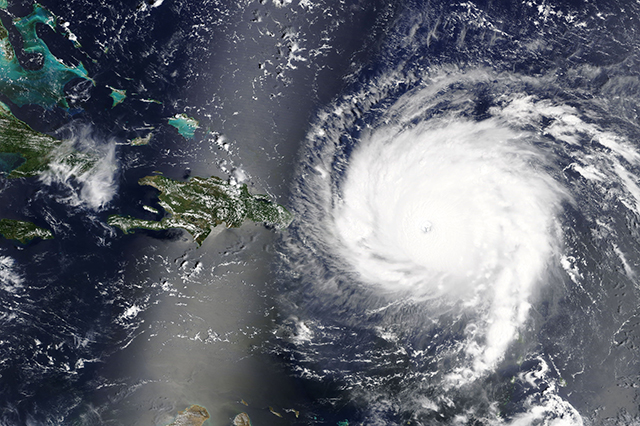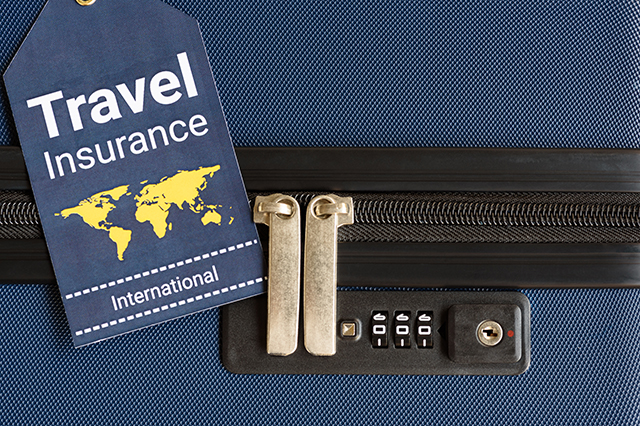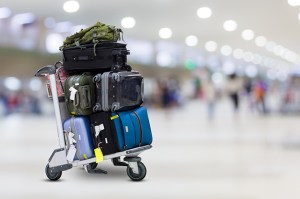As long as baggage gets lost and flights get delayed, there never really is a good time not to buy travel insurance. In fact, that’s the whole point of its existence: to provide a financial buffer between you and “the unexpected.”
That said, there are some times – and some seasons – that offer more than the usual compelling reasons to buy it. We’re talking flu season, hurricane season, tropical storm season, winter storm season, and any other season that increases the possibility you may need protection against trip cancellation or disruption, medical issues and other inconveniences and seasonally altered circumstances.
Click here to learn more about AAA Northeast’s Travel Protection Plan.
Winter
Icy runways, blinding snowfall and other cold-weather difficulties have ground many a winter getaway to a screeching halt – and this can be the case even when you’re flying from one relatively warm area to another, if your plane is going through a cold-weather hub. It’s a domino effect many travelers don’t think of.

Spring
The end of spring, sometime around mid-April, brings hurricane and typhoon season. Actually, the word “season” is a bit of a misnomer here, given it lasts literally half a year – June through November in the Atlantic region (the East Coast of the U.S. and the Caribbean), and even earlier than that (mid-May) in the eastern Pacific.
Summer & Fall
Hurricanes and typhoons (see above), though the “season” winds down in November. Just in time for the winter’s seasonal mishaps to foul up our Thanksgiving plans!
When Should You Buy Travel Insurance?
Given the myriad types of delays, interruptions and outright cancellations foul weather can wreak on your trip abroad, purchasing travel insurance is extremely important. And timing is everything. Purchase travel insurance as soon as you start laying out money for non-refundable items (tours, theater tickets and the like).
Remember, you’re covering your trip against unexpected events, so once the National Oceanic and Atmospheric Administration tracks and names a hurricane or tropical storm, that event is…well, the opposite of unexpected. “Irma, for example, received her name on August 30,” notes travel expert Andrew Bender in Forbes.com. “At that point she became what insurers call a foreseeable event, and policies purchased after that wouldn’t cover losses due to the storm.” The same general rule holds for major winter storms.
Government agencies can prove helpful when planning a trip overseas. The U.S. Department of State issues travel advisories that include useful weather alerts and trip planning advice. The NOAA, famous storm-namer and part of the U.S. Department of Commerce, also offers all kinds of outlooks, climate diagnostics and predictions.
Seasonal Tips and Insights
Travel insurance can’t protect your plans from being squashed by Mother Nature’s whims, but it can help you financially when you’ve shelled out good money and want to get it back in your pocket for another round of trip planning.
Here are a few things to keep in mind when you’re shopping for travel insurance:
- Trip interruption and cancellation aren’t the only ways travel insurance can protect you. Travel medical insurance and medical evacuation coverage can save the day, especially if you are stuck in a weather-ravaged area and need medical assistance. Note: Your own health insurance coverage is not the same abroad as it is at home; emergencies may be covered, while aftercare and medications are not. And Medicare is famous for halting completely at the U.S. border.
- If a hurricane or other weather-related catastrophe hits and significantly damages your home while you are away, your plan may provide trip interruption coverage which may help you with the cost of returning home and reimburse you for an unused, pre-paid or otherwise non-refundable trip costs.
- Prepare for flu season. In the United States, flu season is most common during the fall and winter months. Don’t let being sick derail your trip. Consider getting the flu shot. Learn how high your risk is with reports directly from the CDC.
Has there ever been a time you neglected to buy travel insurance and wished you had? Or a circumstance in which travel insurance saved the day? Feel free to share your insights in the comments section below.
For all things travel-related, from travel plans to travel insurance, visit AAA.com/Travel.
One Thought on “Should I Buy Travel Insurance? A Season-by-Season Guide”
Leave A Comment
Comments are subject to moderation and may or may not be published at the editor’s discretion. Only comments that are relevant to the article and add value to the Your AAA community will be considered. Comments may be edited for clarity and length.
















Always buy insurance, gives me peace of mind